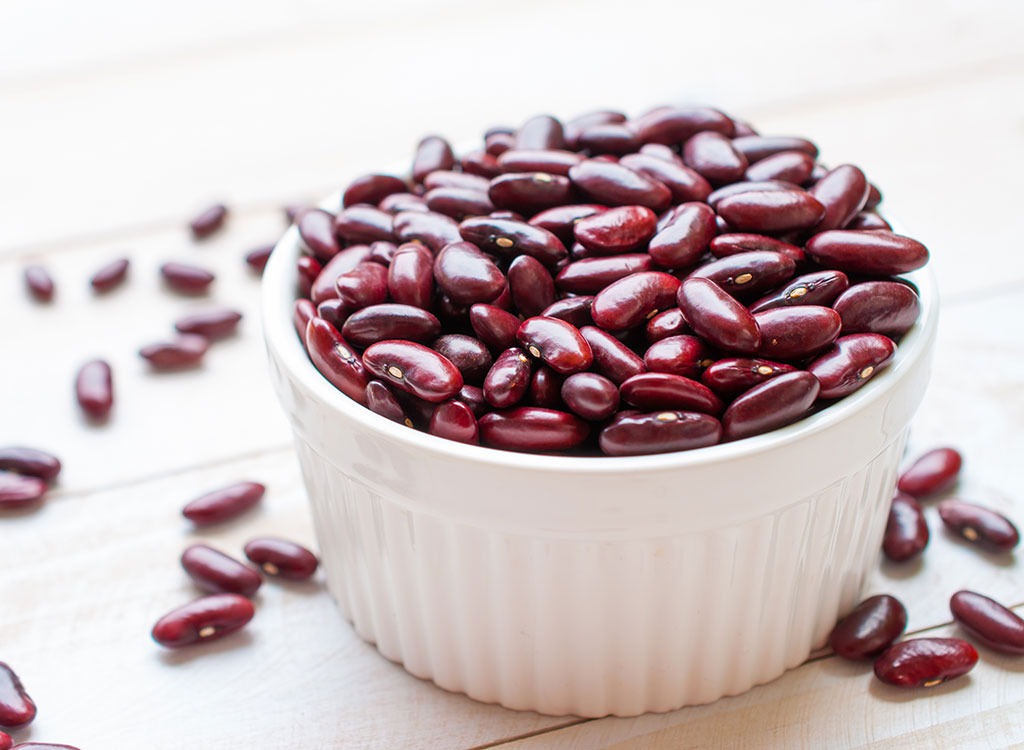Is One Lemon A Day Enough Vitamin C
At least, that's how the old adage should go. Sure, lemons are sour, bitter, and highly acidic—they don't exactly make for an appealing snack by themselves. But they are also chock-full of vitamins and antioxidants, making them some of the healthiest fruits on the planet.
Although the citrus fruit tastes much better mixed with water and a ton of sugar, lemonade isn't exactly good for you (sorry Beyoncé). Luckily, there are healthier ways to enjoy their bright yellow goodness: squeeze one into a glass of hot or cold water, add fresh lemon juice to salad dressings, or grate the peel for fresh lemon zest. The entire fruit from peel to pulp is good for you, which is why our editors at Eat This, Not That! researched exactly what happens when you eat one. And to discover even more stomach-slimming tips, check out these best ways to boost your metabolism!

Don't waste your money on expensive face creams or spa treatments; adding some lemon to your diet could be all you need to achieve a youthful glow. According to a study from The American Journal of Clinical Nutrition, high vitamin C intake was associated with a lower likelihood to develop wrinkles and less skin dryness; two physical traits that can age you big time. Since one lemon contains about half of your daily recommended amount of vitamin C, stocking up on the citrus fruit will make you immortal… or at least, look like you are.

High blood pressure can lead to scary stuff like kidney failure, a heart attack or a stroke. Luckily, eating lemons on the regular has been proven to help. People who ate at least half a lemon a day, coupled with walking about 7,000 steps, greatly increased their blood pressure levels, according to a study published in the Journal of Nutrition and Metabolism. Although lemons shouldn't be the sole treatment for something as serious as high blood pressure, it's a promising health benefit; a lemon a day could keep the doctor away.

If overeating is a problem for you, then lemons could be the answer. Pectin, which is found in the peel and pulp of citrus fruits like lemons, has been proven to help people feel fuller, longer. People who ate just 5 grams of pectin experienced more satiety, according to a study published in the Journal of the American College of Nutrition. Although it would take a few lemons to reach 5 grams, add pulpy lemon juice to your water throughout the day.

Lemons are rich in polyphenols, which are naturally-occurring compounds that contain antioxidants. Although citrus fruits have their own combination of polyphenols, the ones found in lemons can have significant health benefits. A study published in the Journal of Clinical Biochemistry and Nutrition found that mice who were fed a high-fat diet and also lemon polyphenols experienced suppression of fat accumulation and weight gain, and an improvement in levels of blood sugar, leptin, and insulin. Although scientific results in mice don't always translate to the same in humans, the researchers still recommend an intake in lemon polyphenols as a way to combat obesity.

Although regular inflammation is important for your body's immune response to fight off something like a cold, chronic inflammation can lead to weight gain, fatigue, digestive issues, mood swings, and even cancer—pretty nasty stuff. Luckily, vitamin C has antioxidant properties that have been proven to reduce inflammation, according to a study published in the Indian Journal of Clinical Biochemistry. vitamin C was found to be beneficial during inflammatory conditions, including protecting immune cells. For more antioxidant-rich foods, check out our list of foods that fight inflammation.

There's a reason your mom told you to stock up on orange juice if you have a cold; vitamin C has long been essential for staving off cold symptoms and boosting immunity. Although research on just how much vitamin C has an impact on the common cold is mixed, it did show some therapeutic benefits at the onset of symptoms, according to a review published in the Cochrane Database of Systematic Reviews. It also had positive respiratory health benefits, another bonus when fighting off an annoying cold.

There's no denying that water by itself is pretty boring. Although drinking plenty of water is associated with such positive health benefits as losing weight, a faster metabolism and more energy, sipping on plain, flavorless liquid gets tiresome. Adding lemon juice water makes it more refreshing and palatable. Even the CDC recommends adding a fresh lemon squeeze to still or sparkling water in lieu of soda, which is terrible for you.

Nothing ruins the mood like bad breath. But if you're out of gum or mints, reach for a lemon! Eating lemon is known to freshen up your home, and the same can be said for your mouth. The acid in lemon juice neutralizes odors, which helps combat nasty breath from things like garlic and onions.

Just don't go overboard on the lemon juice. Lemons are highly acidic, which can wear away the enamel of your teeth. Once your tooth enamel is gone, there's no getting it back, and enamel erosion can lead to discoloration and extreme tooth sensitivity. Lemons may have amazing health benefits, but it's best to enjoy them in moderation (like anything else).

If you've ever had a kidney stone, then you know the excruciating pain that comes with trying to pass one. But if eating lemons is a regular part of your diet, you may not have to worry about it. Lemons have a high amount of citrate, which has been proven to naturally prevent the formation of kidney stones. A study published in Urology found that patients who received lemonade therapy (four ounces of lemon juice in two liters of water a day with little to no sugar) formed kidney stones at a slower rate than before they started treatment. It was so beneficial, the researchers recommend lemonade therapy as an alternative treatment for kidney stone removal. Speaking of staying healthy, read up on bad habits that make you sick and fat for more salt and sugar duos that you should steer clear of to avoid weight gain!

Lemons are chock-full of cholesterol-fighting ingredients, including vitamin C, which has been proven to lower levels of LDL, or "bad" cholesterol, according to a study in the Journal of Chiropractic Medicine. Lemons also contain flavonoids, which lowered the levels of LDL and triglycerides in participants of a study published in Alternative Therapies in Health and Medicine. And the pectin in lemon peels was found to lower hamsters' cholesterol in a European Journal of Nutrition study. Although hamsters aren't humans, there's enough strong evidence to add lemons to your daily diet for cholesterol-lowering benefits.

People tend to focus on what's healthiest for their body, but your brain needs nourishment and protection, too. Severe cognitive disorders such as Alzheimer's disease and dementia are common with age, but there could be some lifestyle changes that help combat their onset. Lemons could help stave off severe mental decline, according to a review published in the Journal of Alzheimer's Disease. Maintaining healthy vitamin C levels was shown to protect against age-related cognitive decline. So make sure you're getting enough vitamin C now to protect your brain down the road.

If you can stomach eating an entire lemon (skin and all!) your digestive tract will thank you. Lemons are made up of mostly soluble fiber, which help healthy gut bacteria thrive and can lead to smooth and regular bowel movements. Lemons also contain citric acid, which may also help with digestion, although studies are conflicted if it really makes a difference in humans or not.
Is One Lemon A Day Enough Vitamin C
Source: https://www.eatthis.com/benefits-of-lemon/

0 komentar:
Posting Komentar